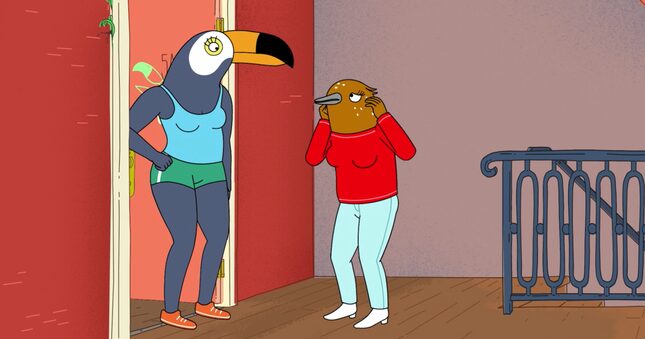

Tuca and Bertie, the new animated Netflix show about two young, urban, professional birds in the big city, begins with a dramatic ending. “TUCA!” Bertie (voiced by Ali Wong) shouts on an urgent phone call to her best friend (Tiffany Haddish). “I miss you! Ugh, I hate change.”
Tuca is in the process of moving out. The secondary purpose of Bertie’s phone call is to remind Tuca that there’s still a box of her stuff at her place and to ask when she can come pick it up.
-

-

-

-

-

-

-

-

-

-

-

-

-

-

-

-

-

-

-

-

-

-

-

-

-

-

-

-

-

-

-

-

-

-

-

-

-

-

-

-








































